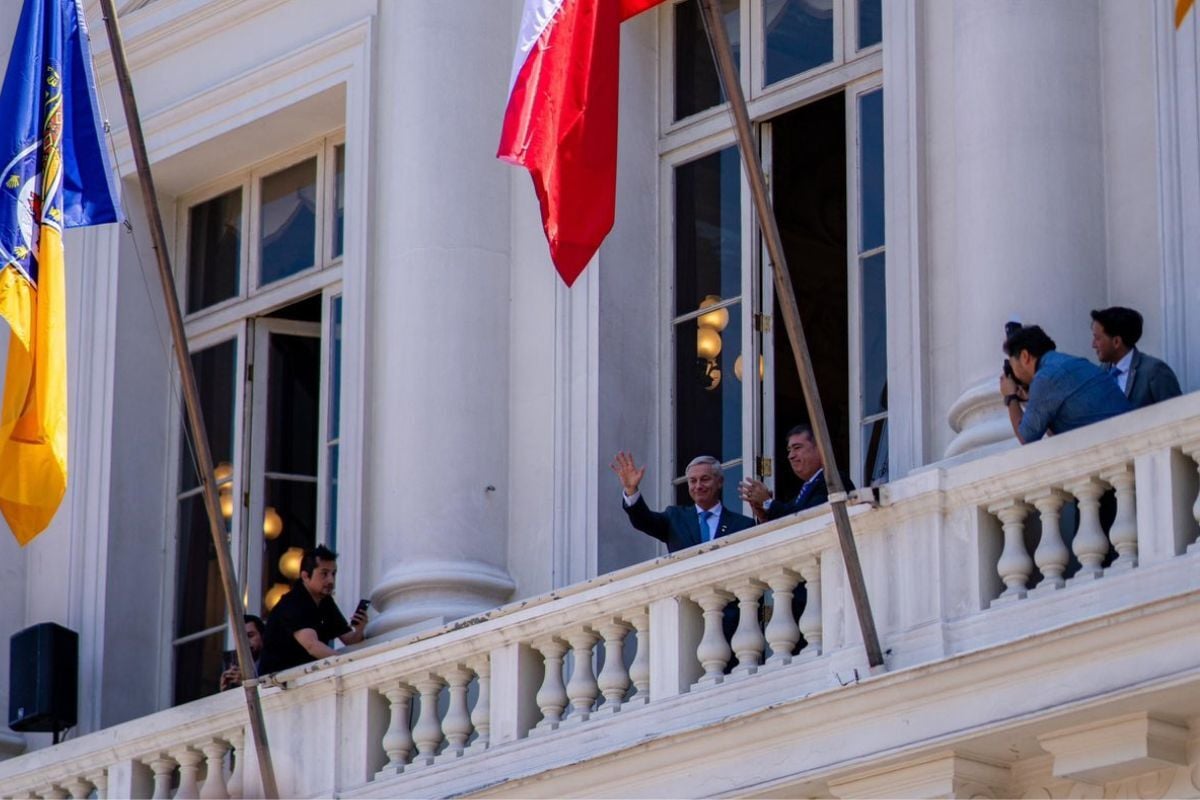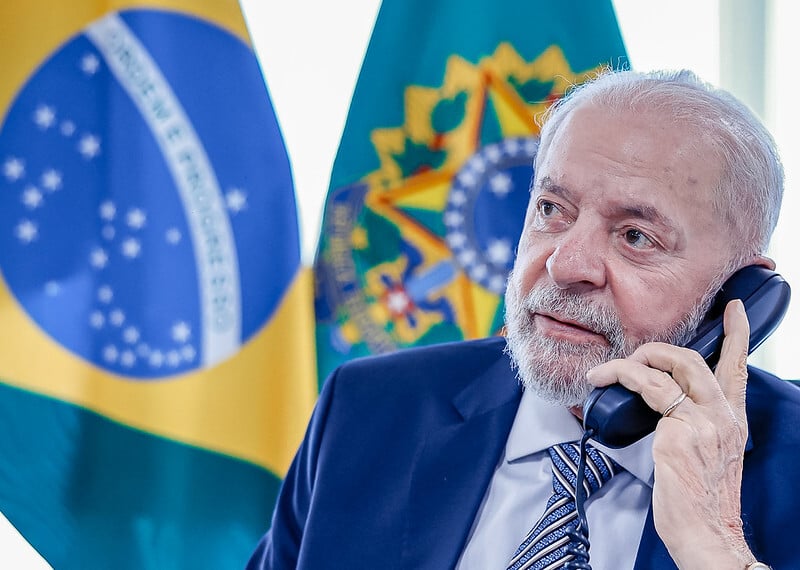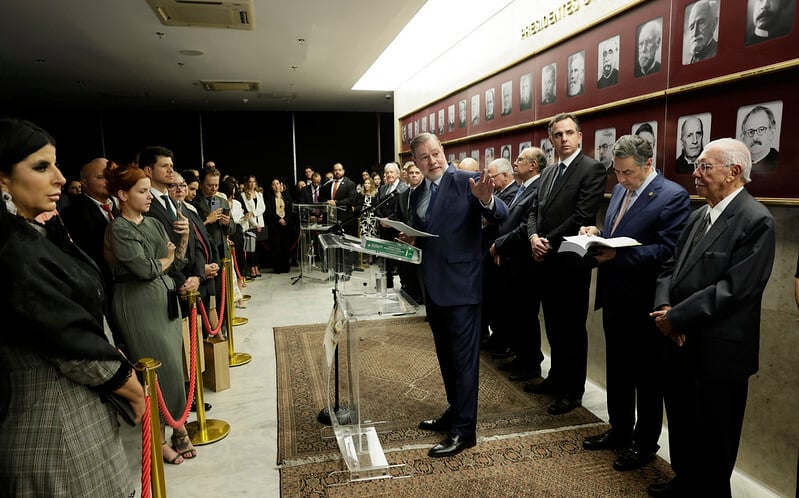
President Lula and Japanese Prime Minister Shigeru Ishiba. Photo: Ricardo Stuckert/PR
President Donald Trump’s transactional approach to foreign policy has disrupted the global order and dealt a blow to the world economy. But as traditional alliances fray and global supply chains are redrawn, the impact of these shifts has not been evenly distributed.
Japan, a staunch US ally, was hit with steep 24% tariffs, despite its close security partnership with Washington. Brazil, on the other hand — where the US runs a trade surplus — faced a comparatively modest 10% tariff. As capital and commerce are rerouted, Brazil may benefit from redirected flows, including exports originally destined for heavily taxed markets like Japan and China.
Washington’s increasing pressure on both trade and security fronts has prompted Japan to look beyond its traditional allies. The first state visit hosted by Japan since Trump’s pre-pandemic trip in 2019 reflects this shift. That honor went to Brazil’s President Luiz Inácio Lula da Silva, who departed Tokyo in March with 10 intergovernmental agreements and 80 memoranda of understanding involving public and private institutions under his belt — a signal of deepening cooperation.
Moreover, Japan agreed to send a sanitary inspection mission, a small but significant first step towards opening the Japanese market to Brazilian meat, a plea Brazil has made for years.
Japan hosts only one official state visit per year. The scale and scope of Lula’s visit underscore a renewed commitment to bilateral ties. “The relationship has reached a new level,” Lula said during his stay, framing the visit as a turning point in Japan-Brazil relations.
Geopolitical instability and a resurgent Trump presidency may paradoxically serve as catalysts for reinvigorating the partnership. With the US-China rivalry accelerating a global realignment, Japan and Brazil — both seeking greater autonomy — are increasingly drawn to one another as strategic partners.
The two countries share a long history of cooperation dating back to the 19th century. Since the 2010s, Japan has sought to bolster its presence in Latin America, wary of China’s growing influence in the region. Yet structural constraints — economic, institutional and political — have slowed progress.
Diversifying away from China and pushing back against protectionist trends requires moving beyond a narrow focus on trade complementarity, which often reinforces Brazil’s dependence on primary goods exports. Instead, both countries are pursuing more robust industrial and technological ties.
Case in point: the recent agreement between Brazil’s Embraer and Japan’s All Nippon Airways to sell 15 regional jets, a win for Brazil’s industrial sector. Japan’s decision to increase biofuel use in transport and aviation also opens the door to cooperation on energy transition.
Brazil has long received development assistance from the Japan International Cooperation Agency (JICA) and is now in talks over a potential Mercosur-Japan trade deal — especially in the wake of renewed momentum on the Mercosur-European Union agreement in 2024, after decades of delays.
Despite their structural differences — Brazil’s development needs and Japan’s aging, stagnant economy — the two nations share concerns over economic security and a desire to assert greater independence on the world stage. Trade was a central theme during the recent Tokyo talks between Prime Minister Shigeru Ishiba and Lula, held just days before the April 2 “Liberation Day” tariff announcement, which sent shockwaves through the global economy.
Brazil’s outsized role in the shifting international landscape has led some analysts to describe it as a “global swing state” — a nod to its potential to tip the balance in an emerging multipolar world. Japan has long recognized Brazil’s importance, establishing its first overseas Japan House in São Paulo in 2017. (The only others are in London and Los Angeles.)
The initiative reflects Japan’s efforts to recast its global image as modern, forward-looking and distinct from its imperial past.
This year marks the 130th anniversary of diplomatic relations between Japan and Brazil. In 2024, the two countries celebrated a decade since the launch of a formal strategic partnership, signed by Prime Minister Shinzo Abe and President Dilma Rousseff in 2014.
As global power continues to shift from the old guard toward emerging states, Brazil’s leadership in the Global South and its position as Latin America’s largest economy make it an essential partner for Japan. Brazil is also home to the largest population of Japanese descendants outside of Japan — a diaspora more than two million people strong.
In a fragmented international order, the time may be ripe to test the Japan-Brazil Strategic Partnership — not as a diplomatic platitude, but as a concrete pillar of foreign policy with real-world benefits.
Luana Margarete Geiger holds a doctorate in political science from the Federal University of Rio Grande do Sul and specializes in East Asian affairs. She is an adjunct professor of international relations at the Pontifical Catholic University of Rio Grande do Sul, a non-resident fellow at the Taiwan Center for Security Studies, and the programs director at Observa China 观中国.








